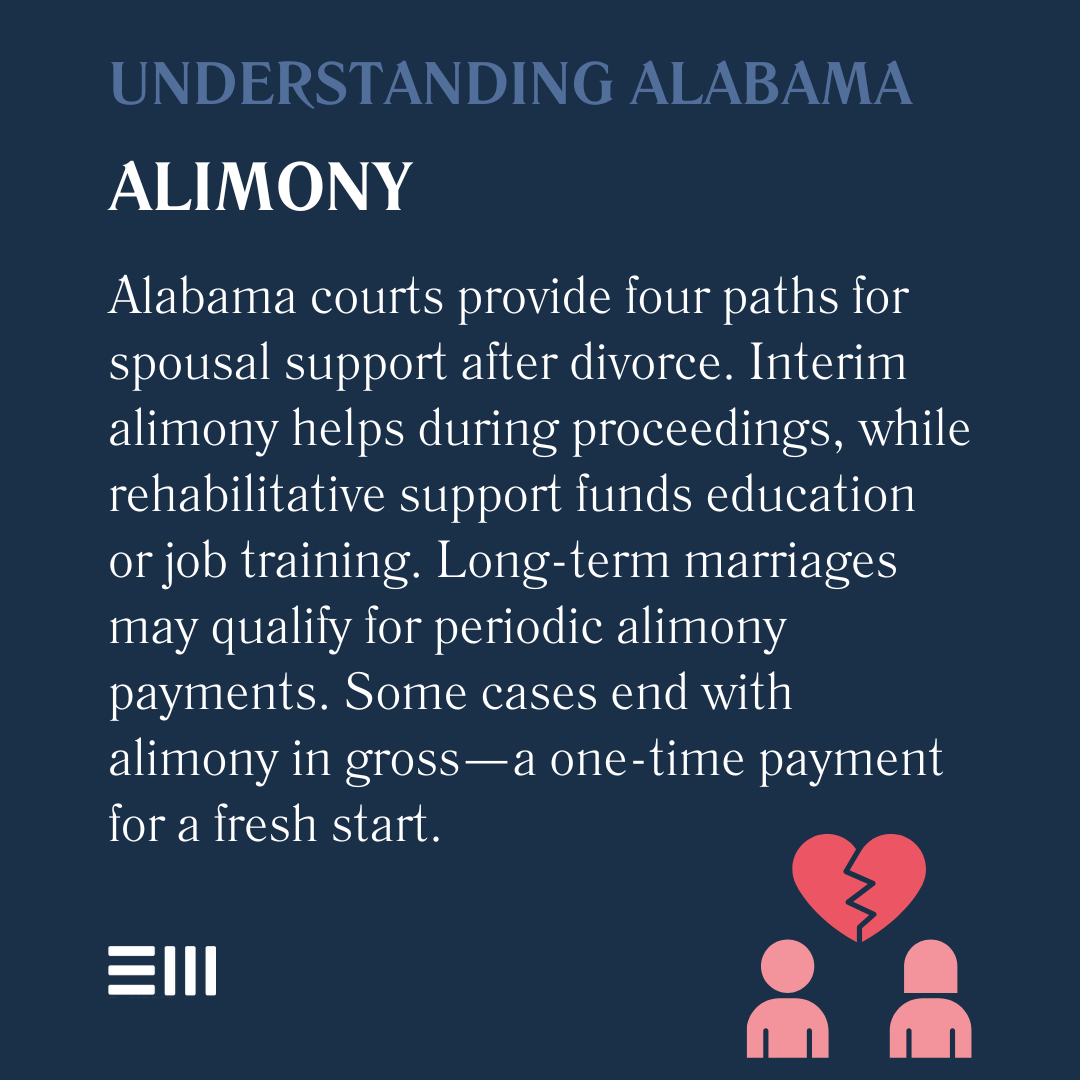Behind every divorce filing in Alabama lies a deeply personal story of change, challenge, and transition.
Whether sparked by growing apart, betrayal, or simply the recognition that paths must diverge, ending a marriage involves navigating complex legal waters that can profoundly impact your future.
From the hills of Huntsville to the shores of Mobile Bay, Alabama residents face unique, state-specific requirements that shape how they can move forward with divorce proceedings.
Residency Requirements and Jurisdiction
Before filing for divorce in Alabama, you must meet specific residency requirements. One spouse must have been a resident of Alabama for at least six months before filing the divorce petition. Military service members stationed in Alabama for at least six months also meet this requirement.
This residency requirement ensures proper jurisdiction and prevents "forum shopping," where individuals might seek more favorable divorce terms in different states. Understanding these requirements is your first step toward filing for divorce in Alabama.
Grounds for Divorce in Alabama
Alabama recognizes both fault-based and no-fault grounds for divorce. Understanding these grounds helps you determine the most appropriate path for your situation.
No-Fault Grounds
No-fault divorces offer a way to end a marriage without proving wrongdoing by either spouse. These grounds include:
- Incompatibility of temperament;
- Irretrievable breakdown of the marriage; and
- Voluntary abandonment from bed and board for one year prior to filing.
These no-fault grounds allow couples to divorce without proving wrongdoing by either party, often resulting in less contentious proceedings.
Fault-Based Grounds
For situations involving serious marital misconduct, Alabama law recognizes several fault-based grounds that may be cited:
- Adultery;
- Imprisonment for two years with a sentence of seven years or longer;
- Drug or alcohol addiction;
- Mental incapacity at the time of marriage;
- Physical violence or threats of violence; and
- Pregnancy of the wife by another man at the time of marriage without the husband's knowledge.
Choosing between fault and no-fault grounds can affect various aspects of your divorce, including property division and alimony determinations.
While fault-based divorces may provide leverage in negotiations, they typically require more extensive evidence and longer court proceedings.
Property Division in Alabama
Alabama follows the "equitable distribution" model for dividing marital property. This doesn't necessarily mean a 50-50 split but rather a fair division based on various factors:
Factors Considered in Property Division
Courts carefully evaluate numerous aspects of the marriage and each spouse's situation when determining how to divide property:
- Length of the marriage;
- Age and health of both parties;
- Each spouse's economic circumstances;
- Each spouse's contribution to marital property;
- Future earning potential of both parties;
- Custody arrangements for children;
- Tax consequences of property division; and
- Marital misconduct (if applicable).
Remember that inheritance and gifts received by one spouse typically remain separate property unless commingled with marital assets. Documentation of separate property is crucial for protecting these assets during divorce proceedings.
Child Custody and Support
Alabama courts prioritize the best interests of the child when determining custody arrangements. The state encourages joint custody when possible, promoting meaningful relationships with both parents.
Factors in Custody Decisions
The courts examine several key elements when determining the most appropriate custody arrangement:
- Child's relationship with each parent;
- Parents' ability to cooperate and make joint decisions;
- Child's adjustment to home, school, and community;
- Mental and physical health of all parties;
- History of domestic violence (if any); and
- Child's preferences (if age-appropriate).
These factors help ensure that custody decisions prioritize the child's stability and emotional well-being above all else.
Child Support Guidelines
Alabama uses the "Income Shares Model" to calculate child support, considering:
- Both parents' gross income;
- Number of children;
- Healthcare costs;
- Childcare expenses; and
- Pre-existing child support obligations.
These guidelines ensure children maintain a standard of living similar to what they would have experienced if their parents remained together.
Alimony and Spousal Support
Alabama courts may award several types of alimony depending on circumstances:
Types of Alimony
The courts can order several different forms of spousal support, each serving a specific purpose:
- Interim alimony (during divorce proceedings);
- Rehabilitative alimony (temporary support for education/training);
- Periodic alimony (ongoing support); and
- Alimony in gross (lump-sum payment).
Understanding these different types of alimony helps you and your attorney determine which form of support might be most appropriate for your specific situation.
Factors Determining Alimony
When considering alimony awards, courts evaluate multiple aspects of the marriage and each spouse's circumstances:
- Standard of living during marriage;
- Marriage duration;
- Age and health of both parties;
- Each spouse's earning capacity;
- Contributions to the marriage;
- Tax implications;
- Time needed for education/training; and
- Assets and liabilities of both parties.
These considerations help ensure that alimony awards are fair and appropriate for each unique situation.
The Divorce Process
Filing for divorce in Alabama involves several key steps:
- File a Complaint for Divorce;
- Serve papers to your spouse;
- Wait for the response (30 days);
- Exchange financial information;
- Attend mediation (if required);
- Negotiate settlement or prepare for trial;
- Attend final hearing; and
- Receive final decree.
Most uncontested divorces take 30-90 days to complete, while contested divorces can take six months to over a year.
Frequently Asked Questions About Alabama Divorce
Understanding the complexities of divorce law can be challenging. Here are answers to common questions that arise during the divorce process:
How Long Does an Alabama Divorce Take?
Uncontested divorces typically take 30-90 days after filing. Contested divorces may take 6-12 months or longer, depending on complexity and court schedules.
Can I Get a Divorce Without My Spouse's Consent?
Yes. While cooperation makes the process easier, you can proceed with a divorce even if your spouse doesn't consent.
How Is Marital Property Divided?
Alabama follows equitable distribution principles, meaning property is divided fairly but not necessarily equally.
What if My Spouse Lives in Another State?
You can still file in Alabama if you meet residency requirements, but serving papers and enforcing orders may require additional steps.
Can I Date During My Divorce?
While not illegal, dating during divorce proceedings may complicate matters and affect custody or property division decisions.
Take the Next Step in Your Divorce Journey
Making informed decisions about divorce requires understanding your rights and options under Alabama law.
Every divorce case is unique, and having experienced legal guidance can significantly protect your interests and achieve your desired outcomes.
Don't navigate this challenging time alone. Our experienced divorce attorneys understand Alabama family law and can help protect your rights and interests.
Contact us today for a confidential consultation and take the first step toward your new beginning.


